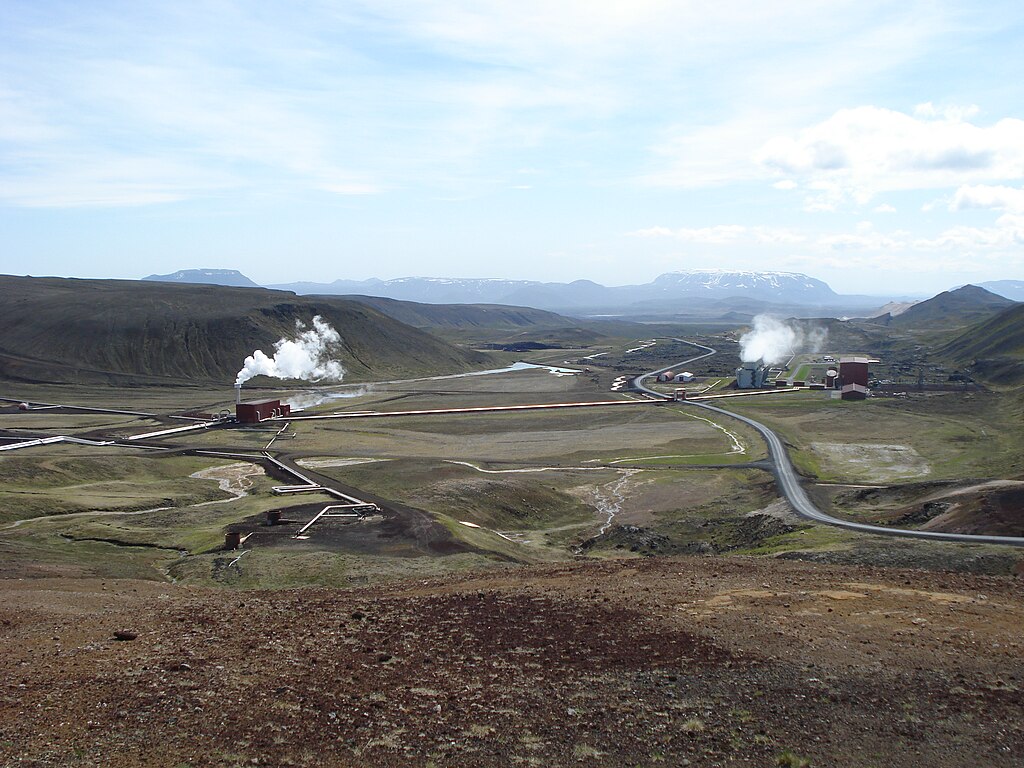
Hungary has great geothermal potential, which could be used primarily for heating and cooling.Continue reading
Attila Steiner, Secretary of State for Energy and Climate Policy, and Bence Gonda, Deputy Head of Strategy at the Supervisory Authority for Regulated Activities, held a meeting with Iceland’s Minister of Environment, Energy and Climate, Gudlaugur Thór Thórdarson, on the applicability of geothermal energy in Reykjavík. The island nation is a remarkable example, as it meets all its electricity and heating needs for households and industry with renewable resources and green energy.
The Iceland Geothermal Conference, held for the fifth time in Reykjavík, provided an excellent opportunity for participants to learn about the technologies used by the world’s leading country in the use of geothermal energy. Iceland’s best practice demonstrates that geothermal heat is not only a stable source of energy, but also a green energy that has a positive impact on the quality of life, reports Magyar Nemzet.
The Hungarian delegation held talks with Gudlaugur Thór Thórdarson, who agreed that
geothermal energy is of high importance today as a safe, sustainable, viable, and renewable energy alternative in the energy mix.
They also discussed the forthcoming National Geothermal Strategy, enabling Hungary to be among the first to respond to the European Parliament’s January resolution calling for accelerated investment in the sector, strengthening its position in the international geothermal sector. State Secretary Attila Steiner spoke at the Arctic Green Partnership Forum, which was held in parallel, and pointed out that the Hungarian EU Presidency starting in July, intends to focus on geothermal energy as a priority issue. All the more so as
Hungary has long been among the top five countries in Europe in terms of geothermal energy utilization. However, there is still plenty of untapped potential in this fast-growing and developing sector worldwide.
The delegation noted that the measures outlined in the National Geothermal Strategy, currently being prepared, could make geothermal energy a key sector of the Hungarian green economy. The current domestic energy use of 6.4 petajoules could double by the beginning of the next decade. The future lies in green energy, making better use of its favorable potential, will strengthen energy sovereignty, contribute to increasing emission-free energy production, and keep energy prices affordable.
During the program, the delegation was able to learn about Iceland’s good practices and innovative solutions, discovering the country’s famous Krafla power station, where the world’s hottest geothermal well was drilled. The delegation gained insight into the complex ways in which geothermal energy is being harnessed in Iceland, from extensive district heating to greenhouse vegetable production.

Krafla Power Station. Photo via Wikipedia.
Bence Gonda stressed that although geothermal energy has been used in Hungary for decades,
the new regulatory environment and the National Geothermal Strategy aim to exploit the favorable conditions as efficiently as possible.
In the autumn of 2022, the National Assembly adopted a new legal framework for the exploration, extraction, and utilization of geothermal energy. This supports Hungary’s energy sovereignty in an environmentally friendly and sustainable way through the increased use of geothermal energy. As proof of the success of the new regulation, the Supervisory Authority for Regulated Activities received almost 100 valid applications for exploration permits in 2023. Thanks to the investments that will be launched, the annual replacement of natural gas could reach 1-1.2 billion cubic meters by 2035.
The extraction and use of geothermal heat for energy purposes should therefore be a priority in domestic energy planning,
as with due diligence and the right investments, reliable and affordable energy can be provided for Hungarian families and businesses.
Via Magyar Nemzet; Featured image via Facebook/Steiner Attila